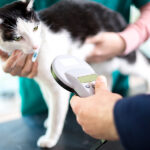If your pet’s smile could talk, it would probably tell you how important dental care is. Yet, dental health in pets often goes unnoticed until there’s a bigger problem. The truth is, your pet’s oral hygiene impacts not just their teeth, but their overall health, comfort, and even lifespan. At Tipp City Veterinary Hospital, we’re passionate about keeping your pets happy and healthy, and dental health plays a major role in achieving that goal.
From understanding the risks of untreated dental issues to learning how you can maintain your pet’s pearly whites, this guide will cover everything you need to know about your furry friend’s oral health.
Why Is Dental Care Crucial for Pets?
Dental care is more than just keeping your pet’s teeth clean. Poor oral hygiene in pets can pave the way for serious health problems, including heart, kidney, and liver issues. This is because untreated dental disease allows bacteria to enter the bloodstream, which can lead to systemic infections affecting vital organs.
According to the American Veterinary Medical Association (AVMA), 80% of dogs and 70% of cats show signs of dental disease by age 3. This startling statistic emphasizes how common, yet often overlooked, dental problems are in our pets. That’s why routine dental care isn’t just a luxury—it’s a necessity.
The Ripple Effect of Dental Issues on Overall Health
When oral health declines, it can lead to:
- Chronic pain and discomfort: Pets with dental disease often eat less, withdraw socially, or become irritable due to discomfort.
- Severe infections: Tartar and plaque buildup can lead to gum infections, abscesses, or tooth loss.
- Compromised internal organs: Gum infections allow bacteria to travel through the bloodstream, potentially damaging the heart, kidneys, or liver.
Common Dental Issues in Pets to Watch Out For
Understanding what can go wrong helps you stay proactive. Here are some of the most common dental problems in pets:
1. Periodontal Disease
Periodontal disease is the most prevalent dental issue affecting pets. It starts with plaque buildup that hardens into tartar, leading to gum inflammation, infection, and eventual tooth loss if untreated.
2. Tooth Fractures
Pets, especially dogs, love chewing on hard objects. However, bones, antlers, and even overly hard toys can cause tooth fractures, exposing the nerve and causing pain.
3. Gingivitis
This is the early stage of gum disease where the gums become swollen, red, and prone to bleeding. Gingivitis is reversible with early intervention, but it can progress to advanced periodontal disease if neglected.
4. Oral Masses or Tumors
Unusual growths inside the mouth can signal anything from benign cysts to cancerous tumors. These require immediate veterinary attention.
Signs Your Pet Might Have Dental Problems
Pets instinctively hide pain or discomfort, so it’s up to you as a pet owner to watch for subtle signs of dental issues. If you notice any of the following, it’s time for a dental check-up:
- Bad breath: While a mild “pet breath” may be normal, a persistent foul odor could indicate infection or gum disease.
- Difficulty eating: Pets in dental discomfort may chew slower, drop food, or avoid eating altogether.
- Pawing at the mouth: This could signal irritation or pain in the teeth or gums.
- Swollen or bleeding gums: Red, inflamed gums are often a sign of gingivitis or periodontal disease.
- Loose or missing teeth: Healthy pet teeth should be strong and intact.
- Visible tartar buildup: Yellow or brown discoloration around the gumline is a sign of tartar accumulation.
- Behavior changes: Pets in pain may become withdrawn, irritable, or less active.
Tips for Maintaining Your Pet’s Oral Hygiene
Prevention is always better than treatment. With regular care and proactive habits, you can support your pet’s oral health and reduce their risk of dental problems.
1. Brush Your Pet’s Teeth Regularly
Just like us, pets benefit from regular tooth brushing. Use pet-specific toothpaste and a soft-bristled toothbrush. Start slowly and make it a positive experience with plenty of rewards. Aim for brushing at least 2-3 times per week.
2. Provide Dental Chews and Toys
Certain chews and toys are specifically designed to clean teeth and massage gums. These can help reduce plaque buildup in addition to freshening your pet’s breath.
3. Choose a Dental-Healthy Diet
Feeding your pet high-quality kibble or dental diets can help minimize plaque and tartar. Some commercial diets are tailored specifically for dental health.
4. Use Water Additives
There are dental water additives available that can help combat plaque and bacteria in your pet’s mouth. These are a great option for pets that resist brushing.
5. Schedule Professional Dental Cleanings
Even with the best at-home care, professional cleanings by a veterinarian are essential. These cleanings are thorough and often include removing stubborn tartar below the gumline where brushing can’t reach.
Why Choose Tipp City Veterinary Hospital for Pet Dental Care?
At Tipp City Veterinary Hospital, we treat your pets like family. Our experienced team uses state-of-the-art equipment to provide the best dental care, from routine cleanings to addressing more complex oral health issues. We ensure your pet receives gentle, compassionate care every step of the way.
Our comprehensive dental services include:
- Dental exams and X-rays
- Professional cleanings
- Extractions when necessary
- Treatment for periodontal disease or other oral conditions
Don’t Wait for Dental Problems to Arise!
Your pet’s smile deserves as much care as their wagging tail or soothing purr. By prioritizing their dental health, you not only prevent painful and costly problems, but you also give them a happier, healthier life.
Schedule a Dental Check-Up Today!
Take the first step toward healthier teeth and gums for your pet. Call Tipp City Veterinary Hospital to book a dental check-up now. A clean mouth is the ultimate sign of love and care your furry friend will thank you for!






